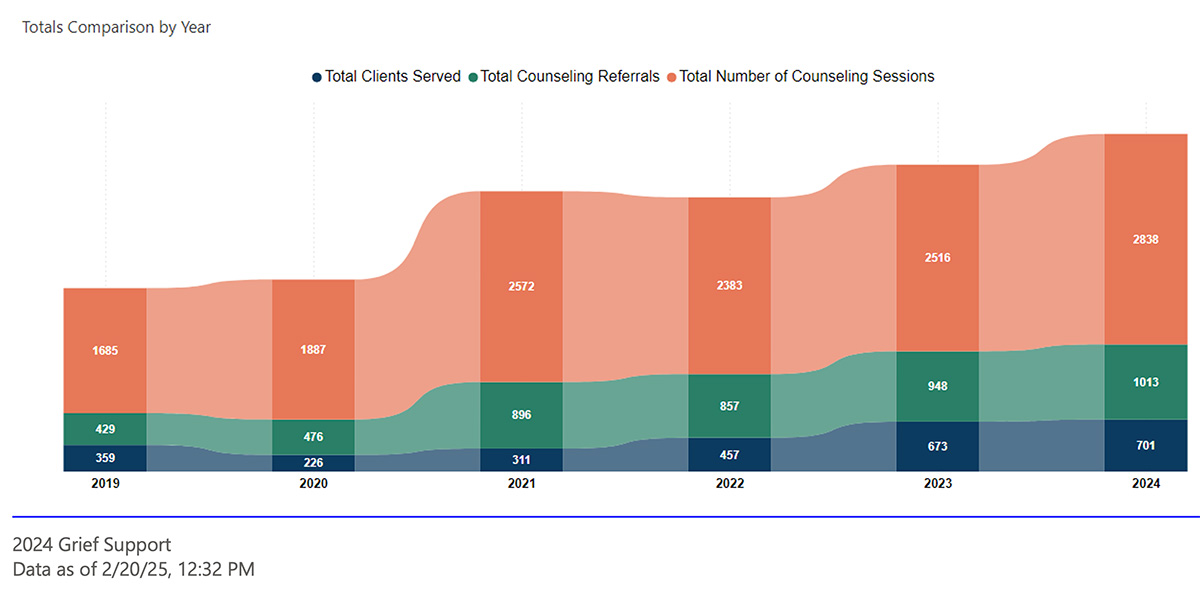
Atención compasiva para niños: Comprensión de los servicios de cuidados paliativos y hospicio pediátricos
Atención compasiva para niños: Comprensión de los servicios de cuidados paliativos y hospicio pediátricos

Cuando a un niño se le diagnostica una afección médica compleja o que limita su vida, las familias se enfrentan a un camino emocionalmente abrumador e incierto. En estos momentos, los cuidados paliativos pediátricos y los cuidados paliativos pueden ofrecer consuelo, orientación y apoyo significativo. Sin embargo, muchas familias no están familiarizadas con lo que son estos servicios o, lo que es peor, les temen debido a conceptos erróneos comunes.
¿Qué son los cuidados paliativos y de hospicio pediátricos?
Los cuidados paliativos pediátricos son atención médica especializada para niños con enfermedades graves, crónicas o potencialmente mortales. Se enfoca en mejorar la calidad de vida mediante el manejo de los síntomas físicos, brindando apoyo emocional y espiritual, y ayudando a las familias a tomar decisiones informadas a lo largo de su viaje.
Los cuidados paliativos pediátricos son una forma de cuidados paliativos específicamente para niños que se acercan al final de la vida, generalmente cuando la esperanza de vida se mide en meses en lugar de años. Garantiza que los niños sean atendidos con comodidad y dignidad, a menudo en el hogar o en un entorno familiar, rodeados de sus seres queridos.
¿Quién puede beneficiarse de los cuidados paliativos pediátricos?
Los cuidados paliativos son apropiados para los niños que enfrentan una amplia gama de afecciones graves, como:
- Cáncer
- Cardiopatías congénitas
- Trastornos genéticos o metabólicos
- Afecciones neurológicas como la parálisis cerebral grave
- Distrofias musculares
- Fibrosis quística
- Complicaciones de la prematuridad
- Enfermedades raras o no diagnosticadas
No está limitado por el pronóstico: los niños pueden recibir cuidados paliativos en cualquier etapa de su enfermedad e incluso mientras se someten a un tratamiento curativo.
Los beneficios de los cuidados paliativos y de hospicio pediátricos
- Manejo de los síntomas. Los equipos de cuidados paliativos son expertos en controlar el dolor, las náuseas, la fatiga, las dificultades respiratorias, las convulsiones y otros síntomas angustiantes, lo que permite que los niños se sientan más cómodos y presentes.
- Apoyo emocional y psicológico. Las enfermedades graves afectan a toda la familia. Los cuidados paliativos incluyen asesoramiento apropiado para la edad del niño y apoyo emocional para los hermanos, padres y cuidadores. Lightways Hospice and Serious Disease Care cuenta con un equipo de especialistas en vida infantil que apoyan a los niños y sus familias con el estrés de tener un ser querido que está en un hospicio o tiene una enfermedad grave a través de conversaciones orientadoras, apoyo del cuidador, estrategias de afrontamiento, juego terapéutico, educación, defensa, creación de memoria/construcción de legado y apoyo para el duelo.
- Coordinación y defensa de la atención. El equipo de cuidados paliativos trabaja para coordinar entre especialistas, hospitales y proveedores de atención domiciliaria, lo que garantiza que la atención del niño sea coordinada, coherente y centrada en la familia.
- Sensibilidad espiritual y cultural. Las familias reciben apoyo que respeta sus valores, creencias y tradiciones en tiempos de incertidumbre y dolor.
- Apoyo para el final de la vida (cuidados paliativos)
Cuando las opciones curativas ya no son eficaces, los cuidados paliativos pediátricos ofrecen consuelo compasivo, oportunidades para crear recuerdos y apoyo digno, a menudo en el entorno familiar, donde los niños y las familias se sienten más cómodos.
¿Por qué es importante la inscripción temprana?
Un mito común es que los cuidados paliativos o de hospicio son solo para el final de la vida. De hecho,la integración temprana conduce a mejores resultados, que incluyen:
- Manejo temprano y más eficaz de los síntomas
- Menos tiempo en el hospital y más tiempo en casa
- Reducción del estrés de los padres y del agotamiento del cuidador
- Más tiempo para planificar metas y experiencias significativas
- Transiciones más suaves en la atención a medida que cambian las necesidades
La inscripción temprana significa que las familias tienen más tiempo para generar confianza con el equipo de atención, expresar sus esperanzas y temores, y explorar todas las opciones disponibles, sin presión.
¿Cuáles son los conceptos erróneos comunes sobre los cuidados paliativos y de hospicio pediátricos?
“Significa que nos estamos rindiendo”.
No es verdad. Los cuidados paliativos consisten envivir mejor, no en rendirse. Muchos niños continúan tratamientos como quimioterapia, cirugías o terapias experimentales mientras reciben apoyo paliativo.
“El hospicio es solo para adultos”.
El hospicio pediátrico se adapta a las necesidades únicas de los niños y sus familias. Incluye personal especializado y capacitado para manejar tanto la atención médica compleja como la dinámica emocional específica de las enfermedades pediátricas.
“Es solo para los niños que se están muriendo”.
Los cuidados paliativos son beneficiosos desde el diagnóstico, pasando por el tratamiento, la remisión o, en casos raros, la recuperación. Se trata tanto de vivir bien como de apoyar el proceso del final de la vida, cuando sea necesario.
“Los médicos de mi hijo me dirán cuándo es el momento”.
Desafortunadamente, muchas familias son referidas demasiado tarde. Está bien, y a menudo es beneficioso, que las familias pregunten sobre los cuidados paliativos en las primeras etapas del curso de la enfermedad.
Elegir el soporte temprano es un regalo
Los cuidados paliativos y de hospicio pediátricos no se trata de perder la esperanza, sino de expandirla. Ofrece esperanza de consuelo, de tiempo de calidad, de momentos significativos y de un viaje de cuidado centrado en el amor y la dignidad.
Ningún padre debería tener que lidiar solo con la grave enfermedad de un niño. Los equipos de cuidados paliativos están aquí para acompañarlos, ofreciendo atención capacitada y compasiva en cada paso del camino.
Si su hijo enfrenta una enfermedad grave, pregúntele a su equipo de atención médica si los cuidados paliativos son una opción o comuníquese directamente con Lightways Hospice and Serious Illness Care al 815.740.4104. Comenzar temprano puede traer claridad, consuelo y paz incluso en las circunstancias más difíciles.
Cobertura de seguro y asistencia financiera
La cobertura para la atención concurrente varía según el proveedor de seguro y el tipo de plan. Lightways Hospice and Serious Disease Care se compromete a trabajar con las familias para ayudar a navegar por su cobertura y beneficios individuales.
Además, Lightways brinda atención caritativa y asistencia financiera a las familias elegibles para garantizar que la atención sea accesible independientemente de las circunstancias financieras.
Comuníquese con nosotros al 815.740.4104 o hable directamente con un trabajador social asignado a su caso para obtener más información sobre cómo solicitar atención caritativa o asistencia financiera.
¿Qué es la atención concurrente?
La atención concurrente permite que los niños con enfermedades graves reciban tratamientos curativos (como quimioterapia, terapias modificadoras de la enfermedad u otras intervenciones médicas) y cuidados paliativos o de hospicio al mismo tiempo. Este enfoque garantiza que los niños y sus familias reciban control de los síntomas, alivio del dolor y apoyo emocional mientras continúan los tratamientos dirigidos a su afección subyacente.
La cobertura de la atención concurrente varía según los planes de seguro y las pólizas de Medicaid específicas del estado. Las familias deben consultar con su proveedor de seguros para comprender sus beneficios específicos. Si tiene preguntas, nuestro equipo de Lightways está disponible para ayudarlo a guiarlo a través del proceso.
Programe una consulta
Para obtener más información o programar una consulta, comuníquese directamente con Lightways Hospice and Serious Illness Care al 815.740.4104.





